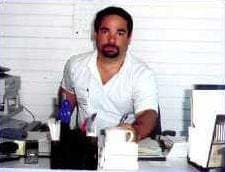
-----
I Need a Practical Guide to Specifying Plating
Thank you for the good and prompt reply to my last question. Your FAQ page has already helped me a great deal. I have two questions:
1. I have searched for a copy of
QQ-P-35C
[from DLA]
C (stainless passivation) and have turned up no references to it on the web. Can you give me a pointer?
2. I am an electrical engineer, forced to select finishes on our products by virtue of my seniority. Is there any book that I can get, like "Finishes 101", that would give me a little better understanding of basic properties like durability, or why stainless steel needs passivation? For example, when I go to my machine shop and say "Can this be zinc plated?", the guy says "Sure.". Then I say, "How about nickel plating?", and he says "Sure." So then I say, "Which one is appropriate for my application?", and he says "Which one do you want?", which, of course, is nowhere near an answer that I can use. I checked your booklist, and they all seem to start by assuming that the reader has a chemistry degree or heavy plating experience. When I was in school, my roommate/would-be-chemist had a required course in electricity, with topics like "A battery and two pieces of wire make a lightbulb light". What I need is the same thing for finishing.
Thanks again for the fine website!
- Mesa, Arizona
1999
QQ-P-35C is a federal spec for passivation and, like many federal specs, it is being supplanted by ASTM and other specs. One problem then is that the spec is officially unavailable, yet people are still specifying it. But another problem is that when we specify a "dead" spec rather than a living document, there is no group available to monitor problems with the spec or offer improvements. For example, there was a major industry issue about hydrogen embrittlement in zinc plating in the last couple of years, and a very energetic ASTM committee straightened it out. But there is no way ASTM or anyone else can straighten out a problem with a "dead" federal spec. As a specifier, I urge you to NOT call out QQ-P-35C but rather to use either ASTM A967 and
AMSQQP35
[canceled].
Letter #2604 addresses the replacement specs, giving a couple of readers' perspectives.
Your idea for a practical guide to plating specs is a good one. We'll work one up as a FAQ, although I can't promise it for this week.

Ted Mooney, P.E.
Striving to live Aloha
finishing.com - Pine Beach, New Jersey
Ted can be retained for immediate
answers or long term project help
1999
1999
I am not aware of any individual book like that. It certainly would make an excellent course for all engineers but I also have never heard of one other than 2-3 hours in a materials class.
ASM has a wonderful set of books, one covers plating. It unfortunately is rather expensive by the single book and very very expensive for the entire set. 10 years ago, it had about the best information that I had seen on cleaning, plating and passivation.
I am sure that they have a web site.
- Navarre, Florida
I would think a good resource would be your plater or possibly a local plater. Most platers enjoy explaining the different types of finishes they do. They should also have updated copies of the specs. for the finishes they do so you can become familiar with them. Once you see a process and become familiar with the properties of the coating, it allows you to have greater control over the quality and choose the best finish for that application. I've even surprised a few potential customers by recommending a better finish we don't do instead of trying to "sell" them on something we had available.

Jim Conner
Mabank, Texas USA
1999
The MFSA has a series of basic booklets which talk to your question for most types of plating, including cleaning etc. They can usually be obtained free of charge from a chemical supplier. The last phone number I have for MFSA is 630-887-0797
aerospace - Wichita, Kansas
1999
Ed. note: MFSA is now a part of the National Association of Surface Finishers, 202-457-8404.
Q, A, or Comment on THIS thread -or- Start a NEW Thread